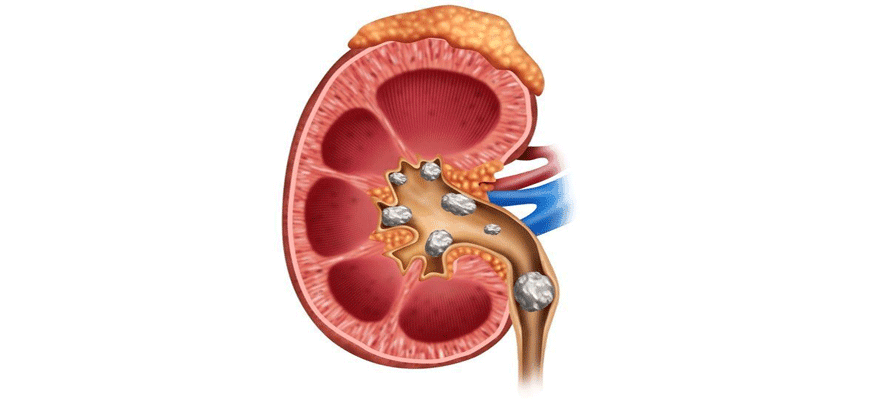A brief overview of the anatomy of the urinary tract would help to explain how kidney stones develop. The urinary tract is composed of two kidneys and ureters, a bladder and a urethra. Urine is produced by the kidneys, which are located towards the middle of the back, below the ribs. The kidneys remove waste products and excess fluid from the blood and convert this to urine. The urine passes out of the kidney through small tubules into the hollow portion of the kidney (renal pelvis) and then into the ureter, a narrow tube connecting the kidney to the bladder. The urine collects in the bladder until it passes out of the body through the urethra. The process by which the stone formation occurs is super-saturation of urine.








